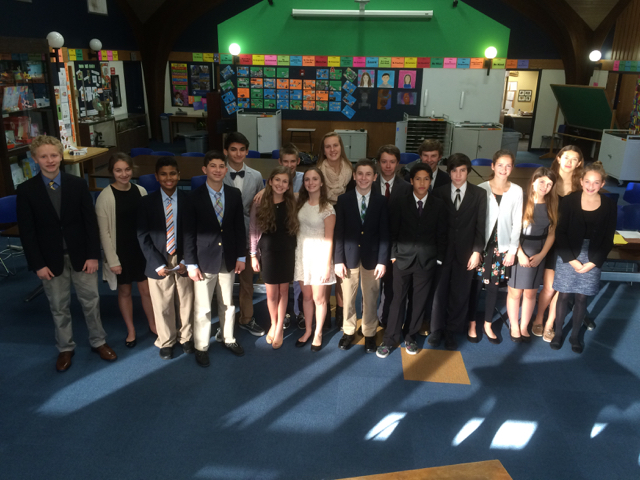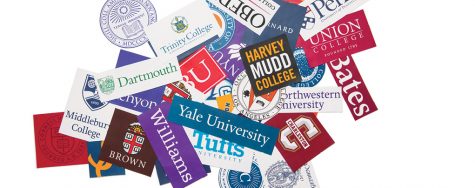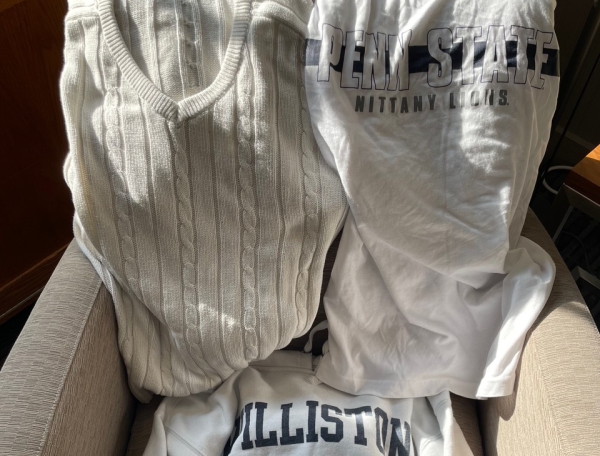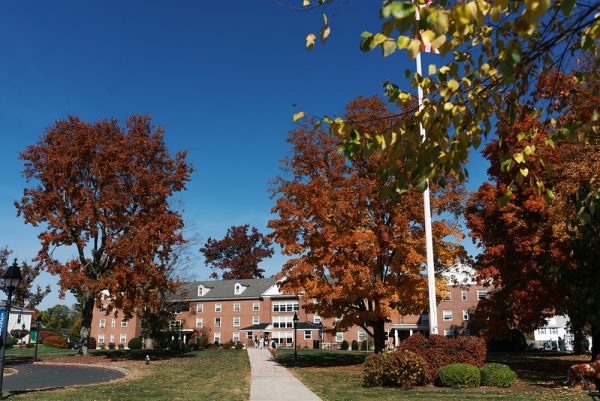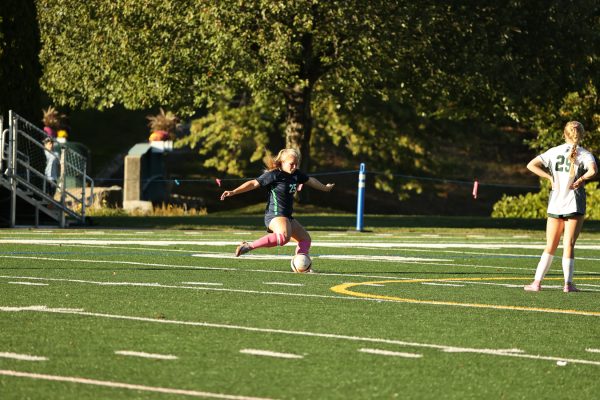8th Grade Civics Classes Conduct Annual Mock trial
This year’s middle school mock trials, conducted by the three eighth-grade Civics classes during the week preceding winter break, had it all. Mrs. Allison Malinowski, who teaches 8th grade civics and who presided over her students’ trial, noted that a mock trial spans a wide range of disciplines.
She says, “Not only does [the mock trial] bring to life the complexity of the law, but it encourages students to think critically, collaborate and develop an argument to defend their stance, even if it’s one they don’t personally agree with. It also allows students to practice public speaking.”
Oscar DeFrancis ’20 participated in one of the trials as an attorney for the prosecution. He says, “educationally, it was a really fast way for us to lean a lot about the law,” while adding, “I really quite enjoyed the mock trial.”
This edition of the trial, which features a new fictional case annually, focused on a confrontation and struggle between a police officer and a high school student, during which the officer sustained a cut on her arm. She pressed charges of assault and battery, as well as disorderly conduct.
The juries, comprised of other Williston students and teachers, came to different conclusions in each mock trial. In the D Period trial, the fictional defendant, Andrew Madison, was found guilty of disorderly conduct and assault on a member of the police force. However, in the F Period trial, Madison was only convicted of battery. Further, in B Period, disorderly conduct was the lone charge that the jury convicted him of.
DeFrancis ‘20 touched on these discrepancies, remarking, “To me, it showed that a lot of how we decide whether someone is guilty or innocent, and change their life forever, is really like a game between two groups…Whether someone is innocent or guilty is determined by someone else’s skill.”
Whether or not our legal system is flawless, DeFrancis ‘20 and Mrs. Malinowski agree that a mock trial is an effective way to learn about it. They also both called attention to numerous other advantages of the trial, as well.
Mrs. Malinowski says, “The benefits are vast. Students use their knowledge of government and the law to craft an argument that meets the needs of their role. Also, students get to practice some ‘acting’, if they are a witness, which is a fun, collaborative effort by all.” She believed that this year’s trials in particular were a success, commenting, “The students in Civics worked tirelessly to create the best argument possible within the time allowed…They showed up for the trial prepared and ready to defend their claims with evidence. [The trial] went really well.”
DeFrancis adds, “I feel like the mock trial was a good way for us to learn how to work without that much structure or guidance from teachers.”



